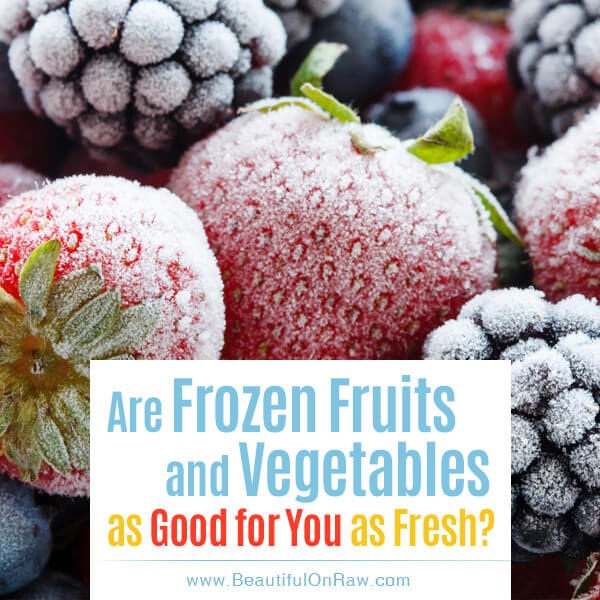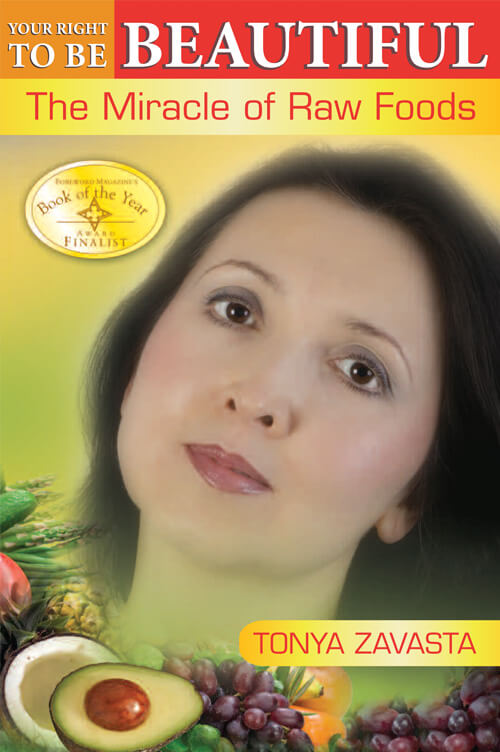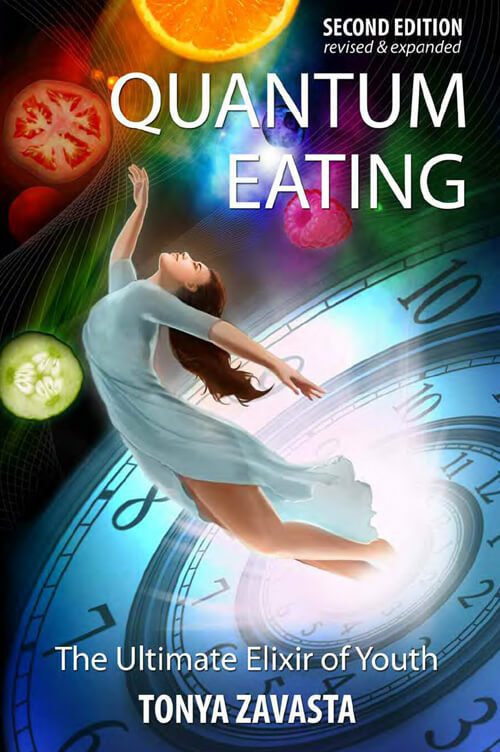Freezing Raw Foods

As we enter into the fall and winter season, food preservation becomes an issue for those wanting to preserve some of the garden bounty without compromising the nutritional value of raw foods.
Modern nutritional science believes frozen foods are just as good as fresh as far as nutritional value is concerned. The claim is that the freezing process itself does not destroy nutrients.
However, let's freshen up on some physics. What happens to water when it is frozen? Does it increase in volume or decrease? If you answered increase, you're correct. Produce such as fruits and vegetables mostly consists of water. Water makes up over 90 percent of the weight of most fruits and vegetables.
First, we should note that freezing does not affect foods with low water content—nuts, seeds, dried legumes and dried fruits. In nature, seeds and nuts remain fertile no matter how cold it gets. The more water a raw food contains, the more it is adversely affected by freezing.
Water and other natural substances are stored in the rigid cells that offer support and structure to fruits and vegetables. When you freeze fruits and vegetables, you are in actuality freezing the water contained in the plant cells.
Since freezing expands water, the walls of the cells rupture in a small explosion. You see a sure indication that cell walls are weakened or collapsed in the mushy texture of watery produce when it is thawed. Fruits like tomatoes, which are especially water-filled, are susceptible to this reaction, which is precisely why they are not usually frozen. This is why once-frozen strawberries or peaches are often served slightly frozen, so you wouldn't see how badly freezing affects the quality of fruits.
It is worth mentioning that raw food is rapidly destroyed when cell walls are burst, whether by cooking, blending, juicing, mashing or freezing. Oxidation occurs when cell contents are exposed to the air. But with blending, juicing and mashing time can be on your side and you can minimize oxidation by consuming your raw food creation as soon as possible.
There's another problem with freezing. Fresh produce contains enzymes which are very good news to raw food people. However, these very enzymes will cause browning, loss of nutrients, flavor changes and color changes in frozen fruits and vegetables. For this reason, blanching--the exposure of vegetables to boiling water or steam for a brief period--is used in commercially frozen fruits and vegetables to kill enzymes (or to "inactivate" them, as it is usually said.
Other measures to prevent or slow down enzyme activity include treatment with ascorbic acid, soaking in diluted vinegar solutions, or coating the fruit with sugar and lemon juice. Obviously, none of these methods are appropriate for the raw foods lifestyle. Of course if you only freeze left over fruits and vegetables, as opposed to buying them already frozen, you can avoid some of these problems; however, the weakened or collapsed cell walls problem, discussed above, would not go away.
Yet foods like banana ice cream and fruit smoothies are still considered healthy in the raw foods diet in the context that frozen foods have similar nutritional qualities as lightly steamed foods. Frozen foods should be used in moderation if at all. They are extremely beneficial and valuable in the transition period. Whether you continue to consume frozen foods as time goes on is strictly up to you. Personally, I on the Quantum Eating level never eat anything frozen.


